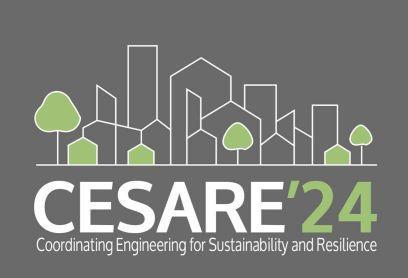Speakers
Description
The construction industry is undergoing a significant transformation driven by digitalizationandan unwavering commitment to implementing principles of Circular Economy (CE) and sustainability into its core practices. Within the framework of the EU’sdigitalization action plan, the construction industry is fervently pursuing digitalization as a primary goal.
Digitalization, particularly Building Information Modelling (BIM), one of the most renowned, well-established methodologies, has become the basis for increasing sustainability and circularity in buildings. However, among the emerging digitalization technologies, such as big data, artificial intelligence (AI), blockchain, and the Internet of Things (IoT), IoT and AI stand out as pivotal toolscapable of expediting the transition towards CE implementation in buildings.We hypothesize that these technologies have significant potential to support CE adoption across Architecture, Engineering, and Construction (AEC) throughout the entire building lifecycle. Notably, for effective end-of-life (EOL) management, integrating Material Passports (MPs)with AI-driven scanningholds promise in assessing resource availability, volumes, and flows. This synergy empowers theoptimization of waste reduction and recycling plans, contributing to more precise planning of selective dismantling or smart deconstruction.
Moreover, digital tools combined with MPsoffer substantial benefitsto stakeholders. They support themin making informed decisions on maintenance and understanding the current quality of specific materials, which is vital for renovation projects where scenario evaluation and comparison are paramount. However, the lack of interoperability and accessibility to opendatarepositories pose challenges to effective data collection and public data provisioning, which are essential prerequisites for the practical application of these technologies.
This studyfocuses on providing a comprehensive overview of the array of digital technologies that are driving circular building practices and explores the emerging trends in this dynamic field.Additionally, it scrutinizesthe effectiveness of adopting these technologies, considering the business landscape and the challenges they may face.
| Keywords | Building Passports, Circular Economy,Construction and Demolition Wastes or End of life, DigitalizationTechnologies,Material Passports |
|---|---|
| Topics | Circular economy |

